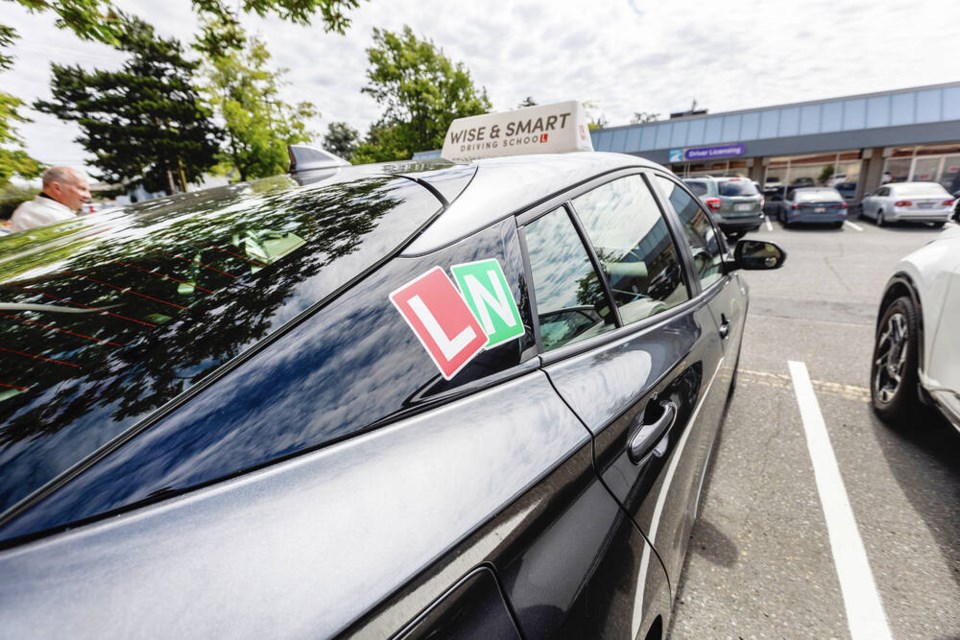Over the past few weeks several readers have asked me to remind everyone about the basics of driving.
If there were one or two requests about that, I probably wouldn’t pay too much attention, but it’s become a consistent theme.
I still was hesitant to go there until I had the experience of riding along with a young driver. It wasn’t pretty.
It’s an assumption but I’ll bet this young man was instructed only by family or friends and picked up some serious flaws as a result.
How do I know? Well for starters, he was unable to parallel park despite driving a new vehicle laden with cameras and sensors.
He had great difficulty judging distance in relation to his speed, resulting in some hard braking in the last few metres before stop signs or red lights. The same thing when entering curves — too fast going in — requiring oversteering to correct the problem.
Finally, he was overdriving a car in which he lacked familiarity. Not every car on the road drives the same as the family beater.
The fair question is then: How did he pass a driving test? The lingering effects of pandemic-related worker shortages may have something to do with it, but even if it wasn’t, our systems are still run by human beings and a small percentage of unprepared and less trained drivers will always sneak through.
The vast majority of drivers do okay and pass their tests. It may not happen on the first try but eventually the drivers our systems put on the road are competent and my example above is an exception.
What happens in the years following the driving test is another story.
I believe most of the bad driving that readers email about is caused by three things: distraction, impatience, and laziness.
Developing good driving practices and making them a habit would eliminate most of these problems.
First up, if you’re learning to drive, take driving lessons. You don’t know what you don’t know — and often your parents or friends don’t either.
Even though lessons can be expensive, most driving schools offer smaller, less expensive “assessment” sessions. It’s one of the best investments a new driver can make. A professional wants you to succeed and will offer straight up advice about your skill level and mistakes.
Slow down. Whatever driving mistake you might make, it is compounded by excessive speed. The reaction time you need is reduced the faster you go — at the same time you are making your vehicle harder to control.
Signal your intentions. Clearly communicating where you want to go or what you want to do is one of the most important parts of avoiding collisions.
Shoulder check. I came upon another young guy recently who was stopped in a bike lane, on a curve. I thought he was broken down. Without warning he swung to the left into traffic so that he could back into a driveway. As I braked to an abrupt halt about a metre from his door, the shock displayed in his bulging eyes told the story. A simple two second shoulder check would have avoided the problem.
Pay attention — always. The majority of collisions occur because drivers missed something. They drove past that car beside them that was stopping for a pedestrian. They needed to make that left turn and failed to spot the car coming right at them. That text or tweet was too important to ignore. Make a habit of continuously scanning the road in front and, via your mirrors, the road behind as well.
Be patient. Driving is tough and there is always going to be construction, weather, that excessively slow driver and a thousand other problems out there. Leave yourself time to get where you’re going. Don’t use aggressive driving tactics to make up for a lack of time.
These points are the very basics of good driving. There are scores of other rules, like keeping proper distance from the car in front, adjusting mirrors correctly, merging safely, wearing seatbelts and knowing your vehicle. Developing those habits will keep you away from that appointment with ICBC.
Beyond the driving part: choose passengers wisely, learn from your mistakes, take the rules of the road seriously, plan for the party, read the road ahead, not just in front and perfect your backing up and parking techniques.
If my young driver at the beginning of this story would have known these rules and practiced the basics seriously, he would have no difficulties in driving.
He’ll get better I’m sure. For the rest of us, always sticking to the basics of safe driving is just as important.



